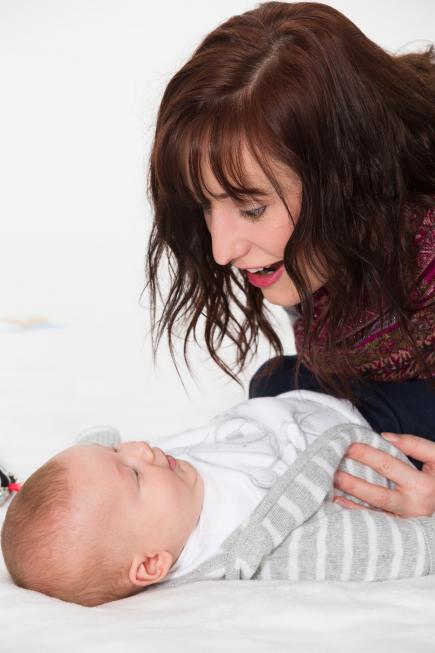peep antenatal programme study
A small scale evaluation of the Peep Antenatal Programme (n=10) was carried out at the University of Warwick. The Programme (originally known as Peep Reflective Parenting Programme) aims to support strong parent-baby bonding and attachment relationships, helping develop parents' reflective function and confidence in tuning in to their baby’s feelings and behaviour.
The study followed 10 parents who received the intervention programme (in additional to their normal antenatal and postnatal care). Data was collected before the programme began, at the midpoint of the programme and shortly after the programme finished. The primary measures used were the Parent Development Interview, Parent Embodied Mentalising and the Crittenden Care Index.
key findings
- Parents are less intrusive and more inclined to think about, and articulate, their baby’s thoughts and feelings, which is a key indicator of reflective functioning capacity.
- Improvements have been noted in parental behaviours associated with sensitive parenting.
- A reduction has been noted in parental behaviours identified as controlling and unresponsive.
- Parents who were in the clinical categories of risk or ineptness regarding their relationship with their baby, have moved to adequate and sensitive categories.
- Parents described the Programme as enjoyable, informative and non-stigmatising.
- Parents requested additional practical examples of activities, rhymes and techniques that they could practice with their ‘bumps’ and newborns in order to maximise the development of a positive attachment bond. They also asked for further information about infant development, including neurobiology and attachment.
A research summary of the findings can be downloaded here.
Follow the links for more information about our Peep Antenatatal Programme and Peep Antenatal Programme Training.

‘An early secure attachment relationship with one or both parents is known to be highly protective of babies’ psychological and emotional wellbeing and mental health.’ (Slade, 2005)
